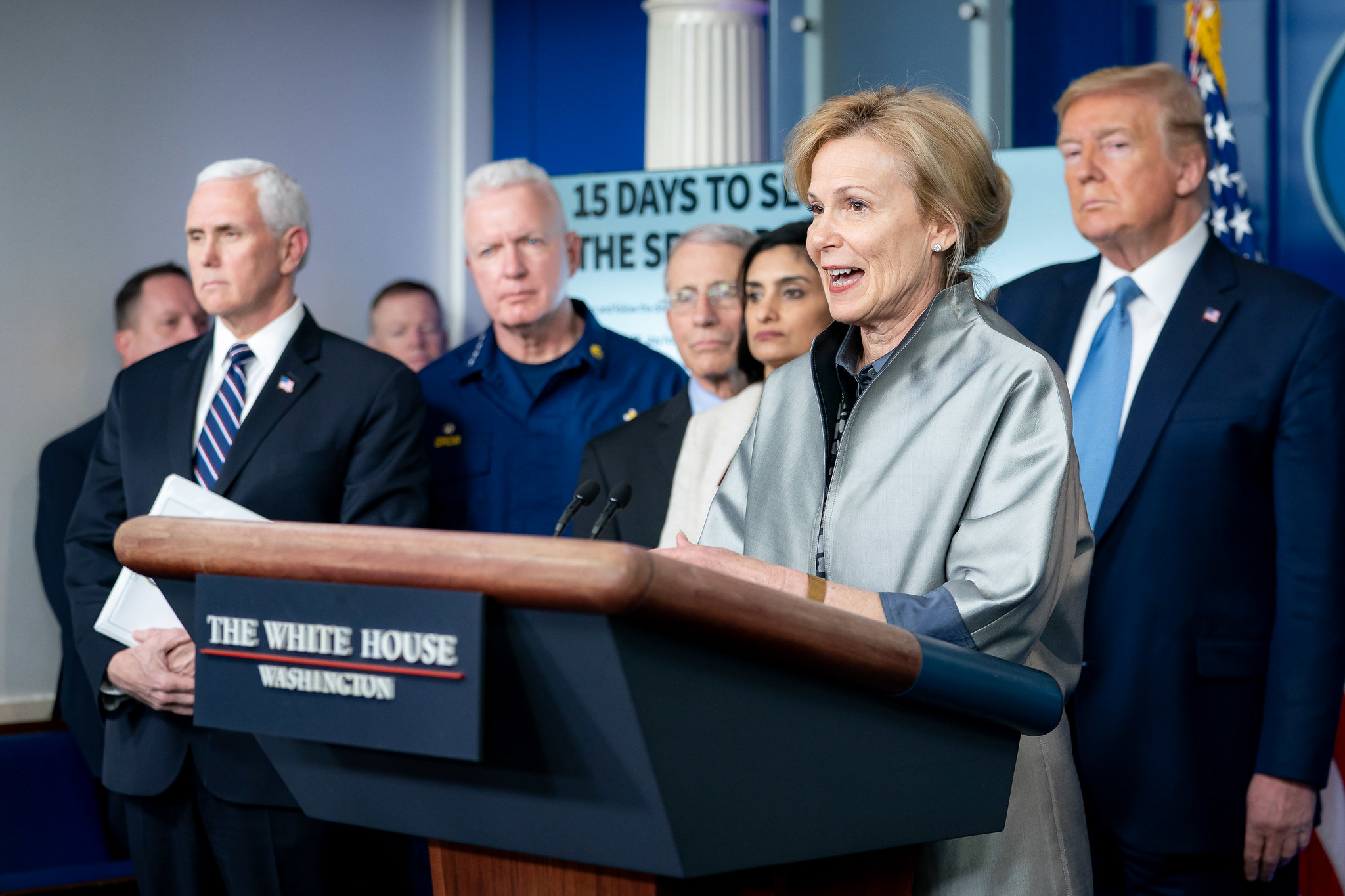White House warns younger people of coronavirus dangers, praises their videogame skills
The nation's cornavirus response coordinator praised millennials' "ability to look around corners and skip through games."

During a press briefing by President Donald Trump, Vice President Mike Pence, and other US officials today, Dr. Deborah Birx, the White House cornavirus response coordinator, took a moment to praise the video game skills of millennials.
Yes, really.
Citing recent reports from France and Italy in regards to young people getting "very seriously ill" from coronavirus, Dr. Birx first cautioned young people to be aware that it's not just older people with preexisting conditions who are at risk, but younger people too. She may have also watched this distressing clip of spring breakers shrugging off the situation.
"So again, I'm gonna call on that generation, that's part of that group that brought us innovation, particularly throughout all of their ability to look around corners and skip through games," Dr. Birx said, weirdly.
"I always went level by level, I didn't realize you could go from level three to level seven," she continued, still quite weirdly. "That's what they taught us, they look for things that we don't see. We need them to be healthy."
You can see Dr. Birx's warnings for young people and praise for their video game skills below, starting around 1:18:40.
Dr. Birx is clearly having a "How do you do, fellow kids" moment amid what I can only assume is a period of high stress and very little sleep. And it's not the first time we've seen someone try to connect with kids by talking about games in a patronizing fashion. It's strange and a little sweet to hear a government official pander to younger gamers in this context.
Keep up to date with the most important stories and the best deals, as picked by the PC Gamer team.
All joking aside, it's important for young people to realize this health crisis is completely real, and does indeed affect them, they are vulnerable just like everyone else, and they should take it very seriously.
Here are the current coronavirus precautions from the Center For Disease Control and Prevention.
- Wash your hands often with soap and water for at least 20 seconds especially after you have been in a public place, or after blowing your nose, coughing, or sneezing.
- If soap and water are not readily available, use a hand sanitizer that contains at least 60% alcohol. Cover all surfaces of your hands and rub them together until they feel dry.
- Avoid touching your eyes, nose, and mouth with unwashed hands.
- Avoid close contact with people who are sick
- Put distance between yourself and other people if COVID-19 is spreading in your community. This is especially important for people who are at higher risk of getting very sick.
- Stay home if you are sick, except to get medical care. Learn what to do if you are sick.
- Cover your mouth and nose with a tissue when you cough or sneeze or use the inside of your elbow.
- Throw used tissues in the trash.
- Immediately wash your hands with soap and water for at least 20 seconds after coughing or sneezing. If soap and water are not readily available, clean your hands with a hand sanitizer that contains at least 60% alcohol.
- If you are sick: You should wear a facemask when you are around other people (e.g., sharing a room or vehicle) and before you enter a healthcare provider’s office. If you are not able to wear a facemask (for example, because it causes trouble breathing), then you should do your best to cover your coughs and sneezes, and people who are caring for you should wear a facemask if they enter your room. Learn what to do if you are sick.
- If you are NOT sick: You do not need to wear a facemask unless you are caring for someone who is sick (and they are not able to wear a facemask). Facemasks may be in short supply and they should be saved for caregivers.
- Clean AND disinfect frequently touched surfaces daily. This includes tables, doorknobs, light switches, countertops, handles, desks, phones, keyboards, toilets, faucets, and sinks.
- If surfaces are dirty, clean them: Use detergent or soap and water prior to disinfection.
Relatedly, I guess, here's the current world record for a heart transplant in Surgeon Simulator: 4.7 seconds.

Chris started playing PC games in the 1980s, started writing about them in the early 2000s, and (finally) started getting paid to write about them in the late 2000s. Following a few years as a regular freelancer, PC Gamer hired him in 2014, probably so he'd stop emailing them asking for more work. Chris has a love-hate relationship with survival games and an unhealthy fascination with the inner lives of NPCs. He's also a fan of offbeat simulation games, mods, and ignoring storylines in RPGs so he can make up his own.

